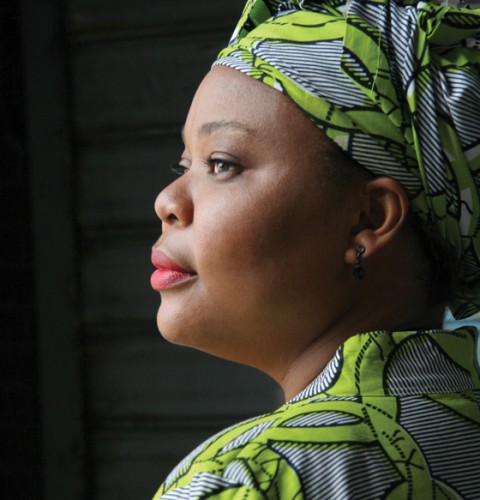To tell the truth: Nobel winner Leymah Gbowee
If Martin Luther King Jr. had written a book exposing his personal failings, it would have been seen as undermining his cause. But Leymah Gbowee does not want to be thought of as a hero.

Read Frykholm's conversation with Gbowee.
In the summer of 1990, two decades before she would win the Nobel Peace Prize, Leymah Gbowee was a frightened 18-year-old huddled in the courtyard of her church in Liberia, expecting the worst. In the midst of civil war between the government and rebel forces led by Charles Taylor, Gbowee's family had left their home and taken refuge in St. Peter's Lutheran Church in Monrovia. Within weeks, close to 1,000 refugees were living in St. Peter's compound.
On July 29, government forces attacked the church in search of food. After raping and killing the woman who held the keys to the church, they proceeded to kill more than 500 men, women and children inside the church using machetes, knives and machine guns. Gbowee and her family had managed to escape just the day before. One of her uncles had come to the church and told the soldiers holding the refugees hostage that he needed to collect his family. Asked which tribe he belonged to, he had lied and named the tribe to which the soldiers belonged, speaking a few words of their language. They released Gbowee, her mother and other relatives, warning them not to come back.





